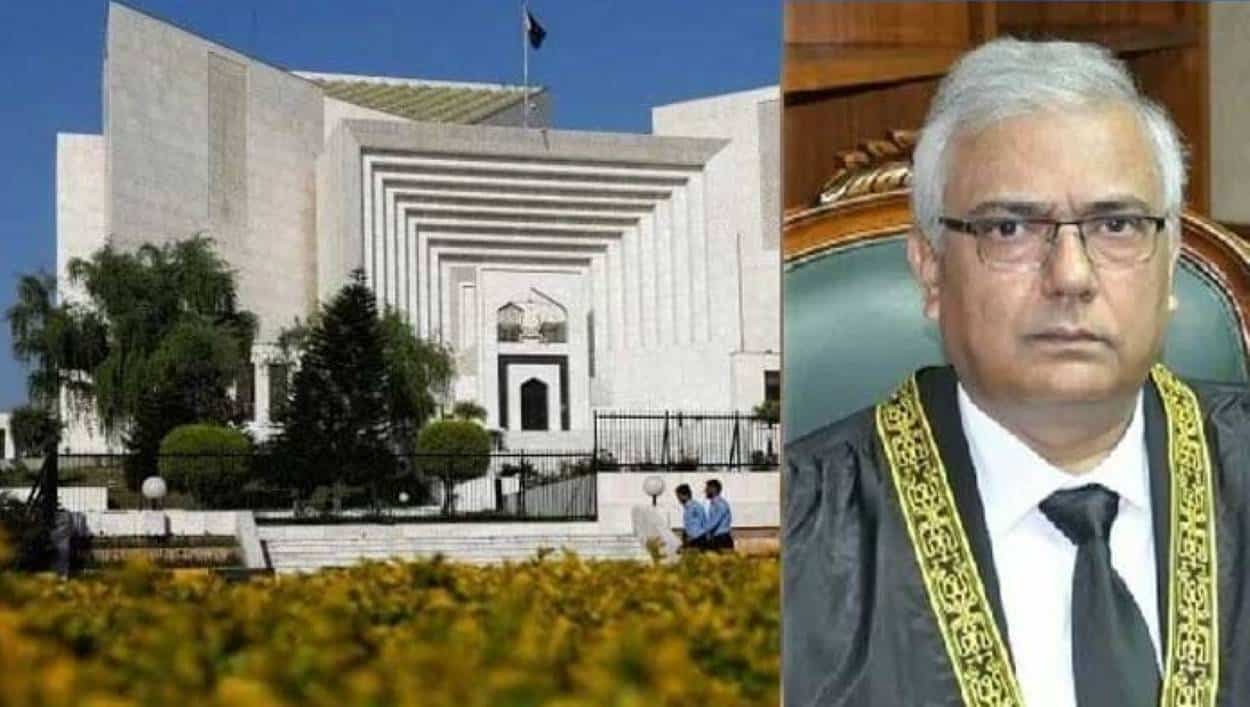On Tuesday, a seven-member Supreme Court constitutional bench led by Justice Amin-ud-Din Khan dismissed a petition challenging the extension of the army chief’s tenure due to non-pursuance. The SC registrar’s office had also maintained its objections, deeming the plea inadmissible.
The bench includes Justices Ayesha Malik, Muhammad Ali Mazhar, Hassan Azhar Rizvi, Jamal Khan Mandokhail, Naeem Akhtar Afghan, and Musarrat Hilali.
The Supreme Court’s decision aligns with recent amendments to the Pakistan (Army/Air Force/Navy) Act, 2024, which extended the service chiefs’ fixed tenures to five years and adjusted the retirement age and service limits, now excluding the top military officers during their tenure.
Read: National Assembly Approves the Pakistan Army Act (Amendment) Bill, 2023
In another case, the bench addressed the issue of multiple first information reports (FIRs) filed for a single incident. They declared the petition inadmissible and dismissed it, with Justice Mandokhail critiquing the contribution of such cases to the judiciary’s backlog of 60,000 pending cases. He questioned the necessity of the petition and suggested imposing a penalty for such filings.
Read: Lt Gen Asim Munir appointed as new Chief of Army Staff
Justice Mazhar referenced the Sughran Bibi case to underline precedent and queried why the petitioner hadn’t sought relief from the High Court for dismissing the second FIR.
Furthermore, a three-member bench led by Justice Mansoor Ali Shah had previously transferred two cases to the constitutional bench. However, during the proceedings, the constitutional bench decided to send them back to the regular bench, emphasizing that not every case warrants constitutional bench review, as Justice Mazhar noted.
The Supreme Court’s decision underscored the procedural nuances and complexities of case transfers within the court system.






